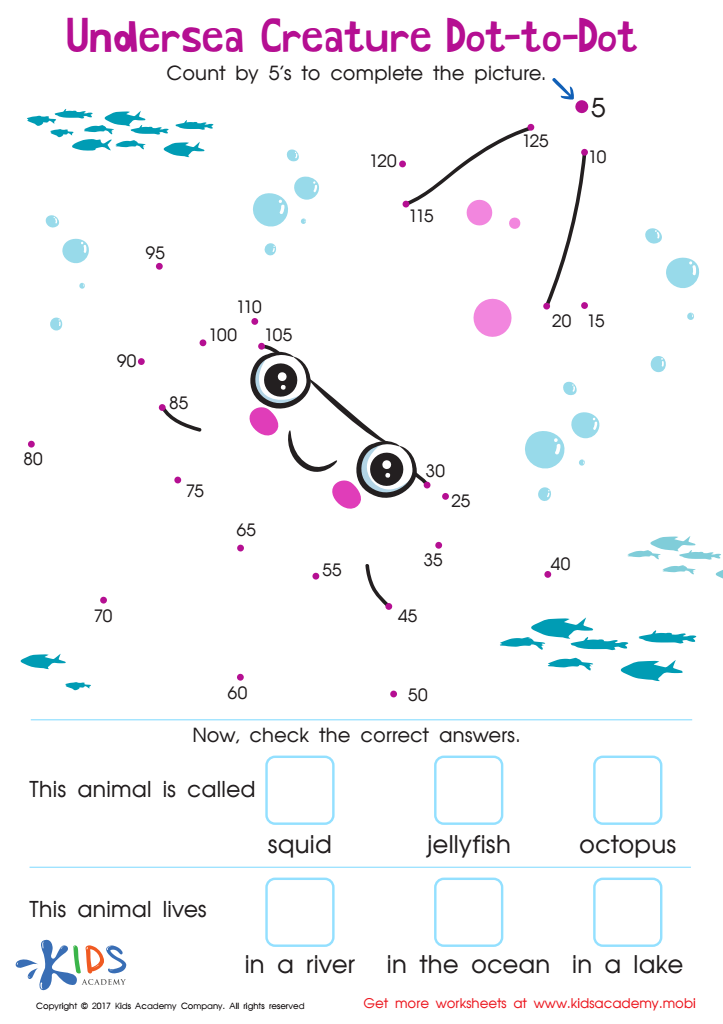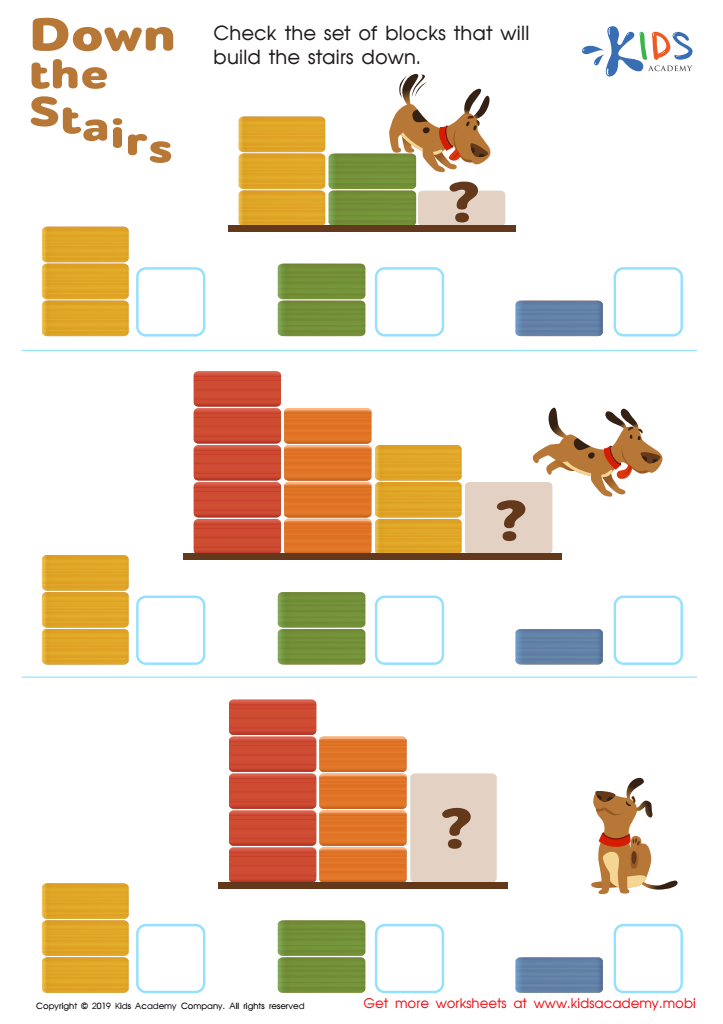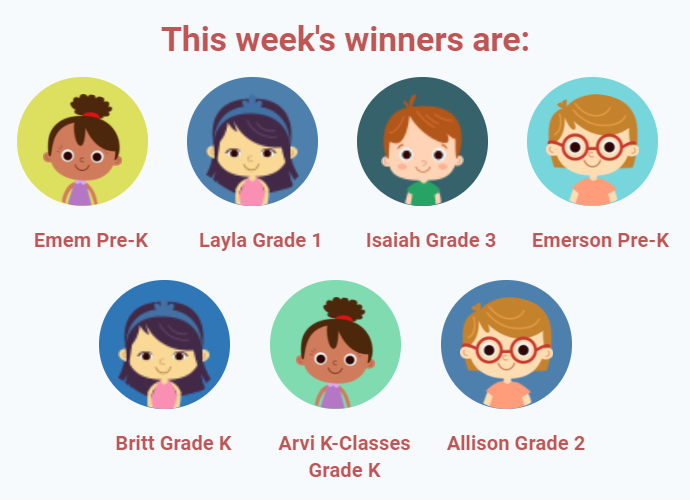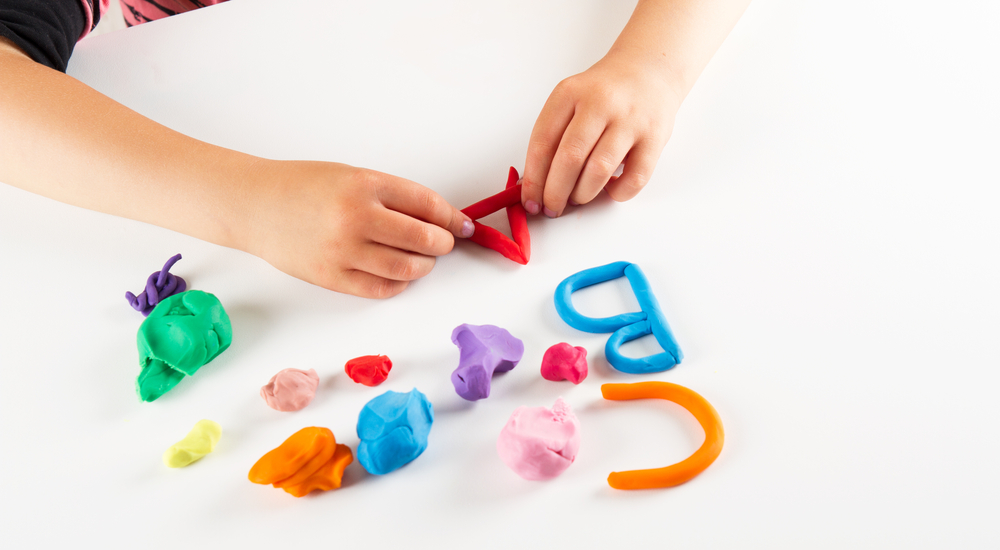Number sequence recognition Worksheets for Ages 6-8
3 filtered results
-
From - To
Discover our engaging number sequence recognition worksheets designed specifically for children aged 6-8. These interactive resources help young learners identify patterns and understand the order of numbers, enhancing their mathematical skills and critical thinking. Featuring colorful illustrations and varied exercises, our worksheets make learning fun and accessible. Perfect for both classroom settings and at-home practice, these activities encourage cognitive development while fostering a love for math. With our comprehensive materials, teachers and parents can effortlessly support children as they strengthen their number sequencing abilities. Explore our collection today and inspire your student's journey to numeric proficiency!


Undersea: Dot To Dot Worksheet


Down the Stairs Worksheet
Number sequence recognition is a fundamental mathematical skill crucial for children aged 6-8, significantly impacting their overall academic development. Parents and teachers should prioritize this area for several reasons. Firstly, it lays the groundwork for more complex mathematical concepts, such as addition, subtraction, multiplication, and division. By understanding number sequences, children begin to recognize patterns, which enhances their problem-solving abilities.
Additionally, mastering number sequences helps students develop critical thinking skills and boosts their confidence in math. Knowing how to identify and extend sequences aids in predicting outcomes, fostering a sense of logical reasoning that extends beyond mathematics into everyday decision-making. Engaging children in this practice also strengthens their cognitive abilities, particularly in sequencing and memory recall.
Moreover, strong number sequence recognition can alleviate math-related anxiety, a common issue that can hinder learning. A solid foundation instills a positive attitude toward mathematics, encouraging continuous engagement with the subject.
Finally, teaching number sequences can foster parent-teacher collaboration. Parents can reinforce these skills at home through games and real-life applications, contributing to a holistic learning environment. Overall, recognizing the importance of number sequence mastery empowers educators and families to support children's educational journeys meaningfully.
 Assign to My Students
Assign to My Students

















